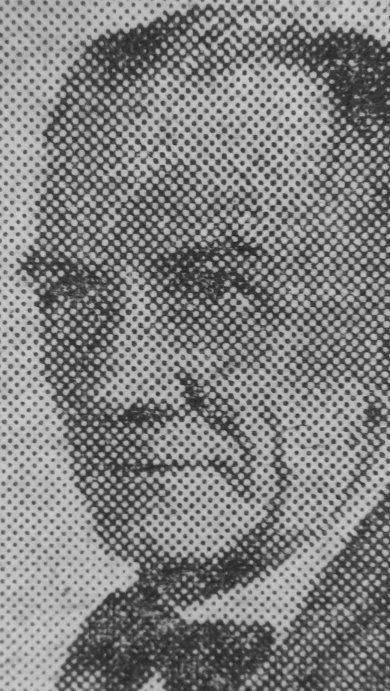South Yorkshire Times November 24, 1956
Over 42 Years Teaching
A Conisbrough Retirement

Mr John Irad Webster, of “Sorrento,” Park Road Conisbrough is retiring after completing 42 years as a schoolmaster and his resignation has just been accepted by the manager of Station Road School, who has sent him a letter of best wishes on his retirement.
A native of Conisbrough, Mr Webster first attended Morley Place School, where, in 1906, he won a County Minor Scholarship to Mexborough Grammar School and later at College in Leeds he obtained his Board of Education Certificate and, on leaving in 1914, he commenced his teaching career at Mexborough National School.
Three months later he was appointed to Doncaster Christ Church school where he remained until January 1920, when he returned to teach in the school where he had been a pupil, Conisbrough Morley Place. In 1929 the reorganisation of the college and schools, with the advent of what is now called the Northcliffe Secondary School, he transferred to Station Road school and for some years was deputy headmaster there.
His Doncaster service was interrupted when he volunteered for military service and joined the RASC Mechanical Transport, in May 1915. He was on the Base headquarters staff in London until late 1917, when he went out with the Italian Base Depot and remained with it until the end of the First World War, being specially retained on the staff in Italy until nearly a year after the end of the war.
Mr Webster had a long association with evening schools. He taught at Morley Place Evening Institute from 1921 to 1926 when he was appointed Head Teacher. This post he held until the closure of the school in 1929, when the Senior Evening School opened at the Northcliffe Secondary School. After a short respite he was appointed Head Teacher of the Denaby Evening Institute in 1937 and continued until 1951 when he resigned.
Mr Webster was also Head Teacher of the Denaby Evening Institute in 1943 to 1944 and in the year in which he held the two responsible positions he ran 67 classes, with 1829 individual students, who put in 2,369 class hours and 32,446 student hours, really remarkable figures.
A member of the National Union of Teachers, Mr Webster has been president of the Mexborough and District Association of the N.U.T. and he attended annual conference of that body in London, Margate and Blackpool.
At College he obtained his hockey colours and also played rugby and tennis. He is remembered in this area as captain of the almost invincible Ivanhoe Hockey Club of mixed players and at times he figured in the Mexborough Men’s team. In 1911 he was given a gold medal when Conisbrough Cricket Club won the now-defunct Swinton and District Alliance, but being a boy he was only the scorer.
Mr Webster was an Independent member of the Conisbrough District Council from 1927 to 1939. During this period he won five elections, his last election address consisting of four lines:
“Council work is not all fun,
You know me and what I’ve done;
If fed up, give me the sack,
If you’re not, then send me back.”
He joined his father, who had been elected in 1924 and in 1928 the two were joined by his brother Charles and until the father retired from the council in 1929, all three male members of the family work Council representatives.
He was for several years a member of the Doncaster Area Committee of the Yorkshire Council for Further Education and was a first member of the teaching profession to sit on the Mexborough and District Education Executive.
He was for many years keen on foreign travel and between the two world wars never missed a year from going abroad. At one time or another he and his wife visited a dozen Western European countries from Scandinavia to Spain and Italy.
A thrilling memory of many years ago was of looping the loop over his own home, in an aeroplane piloted by well-known Conisbrough man, Mr Arthur Drabble.
Mr Webster’s comments on present the education system were, “Too many frills and too many women.” He said teaching was a grand vocation for women but equal pay had made it a questionable profession for men, unless they, like so many have done, married other teachers.
